Helen Rumbelow
Britain donates more than a thousand condoms a minute to the developing world. It’s an unsung success story that should make our nation proud
Last week, the UK Government announced that it would pay for 42 million condoms to be sent to South Africa as part of its preparations for the football World Cup. The news was greeted mostly with titters — just how many condoms does John Terry need?
But it was actually a glimpse into one of the most unsung, unknown British successes. It is a story of thinking small to make a big difference. Of staying true to our values, even when those more powerful than us were rejecting them. It is a story of those three best of British qualities: smutty humour, decency and Blitz spirit, which combined to give us a philanthropic vocation. It is a story of Britain saving the world, one condom at a time. You may know that Britain, in Durex, is home to the most successful condom brand in the world — producing a third of the billions of commercial condoms gracing the planet’s manhood. You may even be part of the movement that means, as of October last year, the condom became the UK’s contraceptive of choice, according to the Office for National Statistics. For the first time since the flower-power era, British women now rely on the condom as much as the Pill.
But what you probably don’t know is that in 2007, Britain was the largest country donor of condoms to the developing world. For every occasion when the US preached abstinence, the British quietly upped their shipments of condoms. In this single, bold and often lonely, policy decision, it may have saved millions of lives. Britain is in love with condoms, and it shares its love with condoms. Professor Alan Whiteside, one of the world’s leading experts on HIV since the epidemic began in 1981, told me Britain’s commitment to the condom was unique.
“When the rubber hits the road, and I think I can use that analogy here, condoms are the only effective way of protecting an uninfected person having sex with an infected person, until we get a microbicide,” says Whiteside, a South African who is a visiting professor at the University of Liverpool’s School of Tropical Medicine.
“And Britain’s excellent track record on condoms is born of two things: realism and consistency. Britain has a pragmatic view of the world and of public health. That has made the difference.”
I caught Whiteside after an emergency summit of Aids experts in the House of Lords last Tuesday. The political envoys from Britain, America and Africa, were seated beneath a giant fresco of Moses handing down the commandments — “thou shalt not commit adultery!” — to the people. To reflect the new approach, it should instead have had Moses doling out Durex to the throngs. This is how far the consensus has swung behind Britain’s lead.
But to understand why, first, we need to go back. Britain embraced condoms from the start. The earliest proof of an animal-gut version — dating from 1647 — was discovered in excavations at Dudley Castle in the West Midlands. By the 18th century, trade was thriving — if you couldn’t afford the best gut condoms from Mrs Phillips’s shop off the Strand in London, a rival seller, Miss Jenny, offered bargains, washed, and second-hand.
In the 19th century, the modern latex version was invented, but so were Vic- torian morals. When the First World War broke out, the US and Britain were the only countries not to arm their soldiers with condoms. Abstinence was the only defence against rampant syphilis. As a result, the sexually transmitted disease among British soldiers was said to be seven times that of the Germans. The British were forced, because of failing manpower, to issue free condoms to its troops. This was a foreshadowing of the great condom battle between pragmatism and principles during the HIV epidemic almost a century later.
By the 1990s it was obvious that Africa needed condoms. But, says Jagdish Upadhyay, of the United Nations Population Fund (UNFPA), the largest distributor of condoms in the developing world, Britain was among the few who stepped forward.
“Since 1994, Britain has been a very, very strong supporter of reproductive health,” Upadhyay says. “This compares with some other countries in Europe, who don’t like to support condoms much for religious reasons. Italy — we’ve not received anything from them for condoms. Spain — recently, but not for a long time before that.”
Then, from the UNFPA’s point of view, disaster struck with the election of President Bush in 2000. He cut all funding to the UNFPA, because of its other work on family planning. Bush alleged that the UNFPA aided China’s policy on abortion. Other Western countries dismissed this and continued to fund the UNFPA.
In place of the millions of dollars that would have gone to condoms via the UNFPA, President Bush set up his own Aids initiative, with much increased funding, particularly for treatment. On the prevention side, abstinence was promoted. “They thought that by supporting condom use, we were doing the wrong thing,” says Upadhyay, who is in charge of managing condoms for the UNFPA. “Conservative groups talked about family planning in the religious context, and put internal pressure on the administration.”
Bush’s officials denied this, saying that their approach was based on effectiveness, rather than ideology, but that didn’t stop the new policy drawing widespread ire. Stephen Lewis, the UN’s special envoy for HIV/Aids in Africa, concluded later, “the overemphasis on abstinence probably resulted in an unnecessary number of additional infections.”
It wasn’t just Bush. The humble rubber just wasn’t as exciting as new drugs. I sat with Peter Roach in the Durex London office, a serious building far from the Playboy mansion I had imagined. By now I was getting adept at condom chat with middle-aged men, at least if they avoided the use of the word “contraceptive sheath”, which induces shudders of the wrong kind.
“At the International Aids Conference in 2002, there was hardly a mention of condoms,” Roach says. “Even at the conference in 2004, less than 1 per cent of the papers and posters had condoms in their titles. It wasn’t until 2008 that there has been a concerted effort to bring prevention back on to the international agenda, equal to treatment. A lot of people thought, all you’ve got to do is ship huge quantities of condoms into a country, job done.”
But that was far from the truth. It was hard, logistically, to get condoms to the right people, and then to persuade them to use them. Roach is vice-president of the Durex Network, the social side of the company that works with governments and charities. He saw huge shipments of condoms needlessly delayed at borders in Kenya, and in Haiti found a warehouse full of tens of thousands of forgotten condoms, all past their expiry date. A study by the Indian Government showed that more than 70 per cent of free condoms were never used. When it came to the crunch — a possibly fatal crunch — people didn’t trust a freebie. For all the research effort on expensive Aids treatments, not enough thought had gone into getting cheap condoms between couples.
“We realised,” as one adviser to the Department for International Development (DfID) told me, “you can’t mop the floor while the tap is still running.”
So now, the buzzword in condoms is “social marketing”, creating sexy looking brands for people to buy, which disguise the fact they are heavily subsidised by aid money. The biggest social marketer of condoms is Population Services International (PSI), an organisation with fascinating roots. It was set up in the 1970s by the American philanthropist Phil Harvey, who created a US pornography business to fund contraceptives for the Third World. As one of his employees put it, Harvey “steals from the horny to give to the poor”. (Harvey is no longer connected to PSI).
Now PSI works closely with the British Government and Durex. So, for example, in Nigeria, Britain is now giving £45 million to condoms and their promotion over six years, all of it channelled through the local PSI organisation. Britain is the only funder of PSI in Nigeria, and through it will end up supplying about 75 per cent of the condoms in Nigeria’s private sector.
This pattern is repeated all over Africa: Britain has given Kenya (through PSI) £22 million over five years, 80 per cent of it for condoms, a similar story in Zimbabwe, and so on. In 2007 the UK provided more than half a billion condoms to developing countries, more than a thousand condoms a minute.
It’s the kind of statistic that can make your eyes water. When I catch up with Gareth Thomas, a DfID minister, and start plugging him with questions, he teases me for my condom obsession. Even with President Obama now happy to proselytise through prophylactics, the UK still runs the US a close second on condom donation. As many men do in these situations, Thomas looks bashful. “We tried to remind those who polarised the debate that prevention was important. We always thought that was one of the things we could do best.”
Amazingly, it is still not enough. Western nations’ condom donations have remained flat for eight years. Yet the estimated gap between the supply of condoms, and the need to prevent HIV spread, is 6.5 billion condoms. Is that enough to arouse a sense of greater patriotic duty?





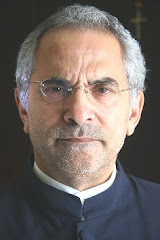
















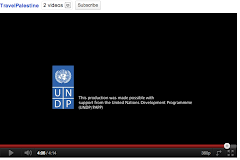

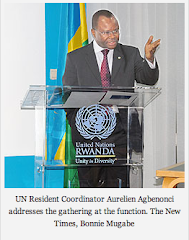





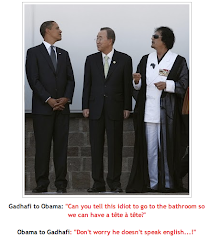







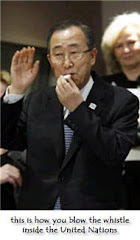
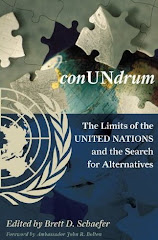

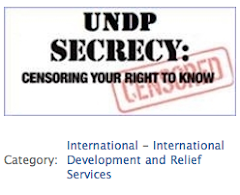







No comments:
Post a Comment